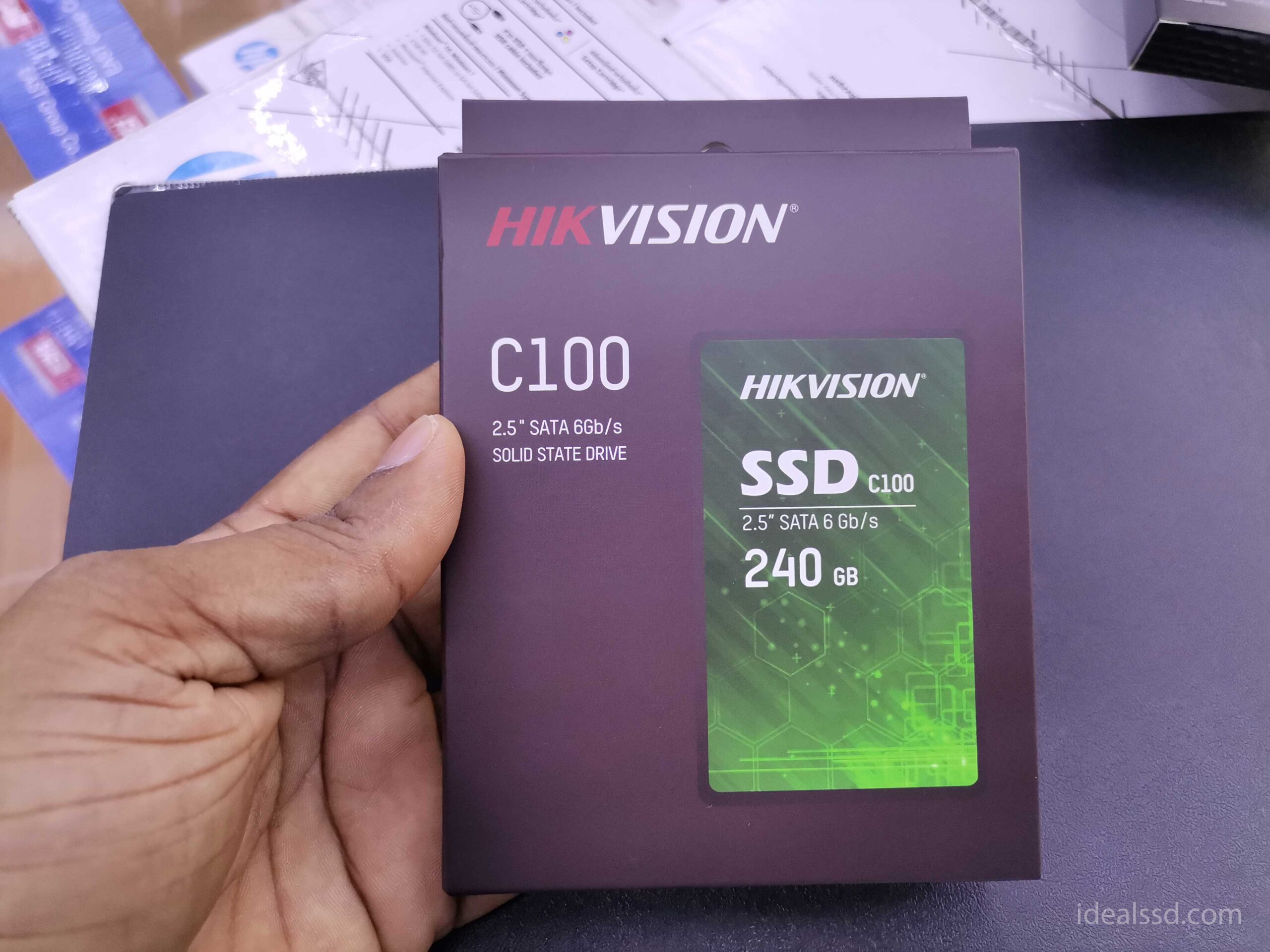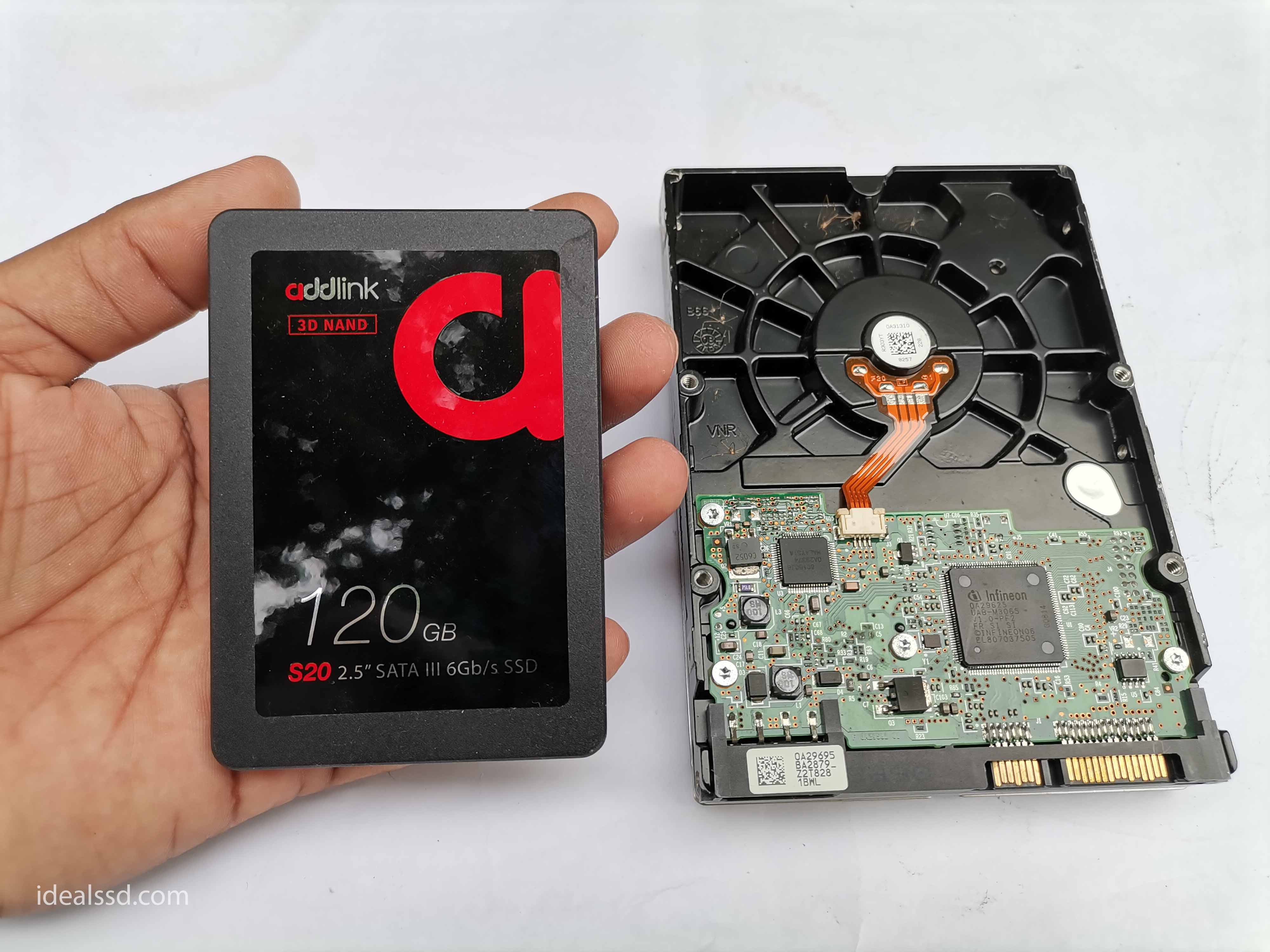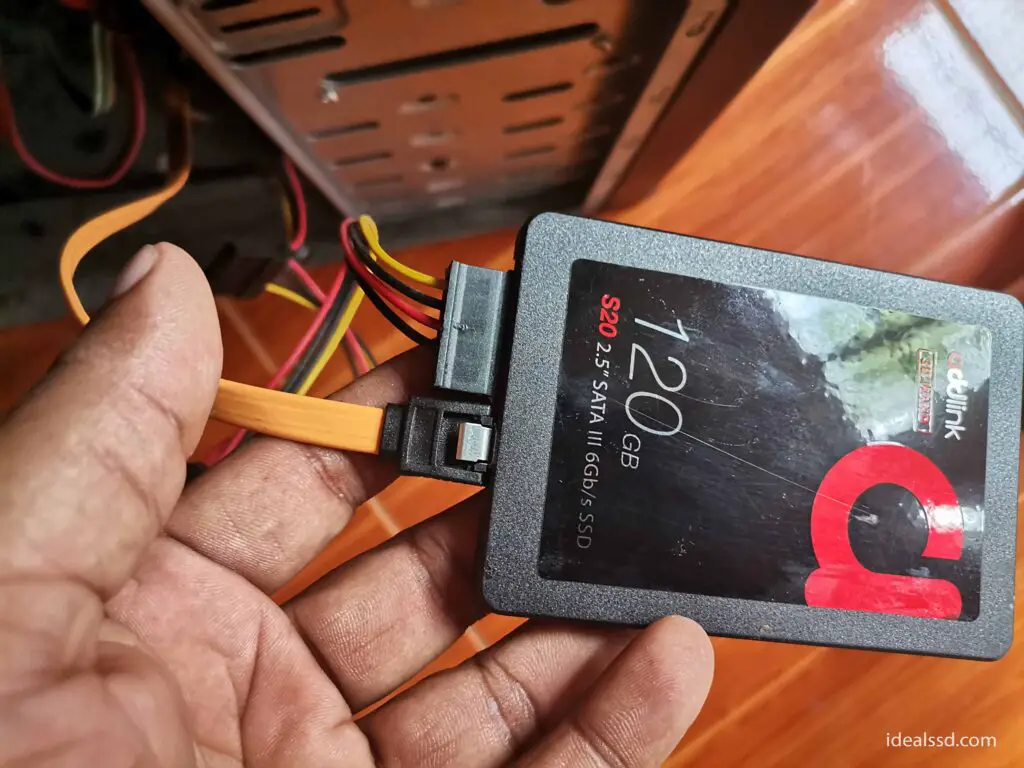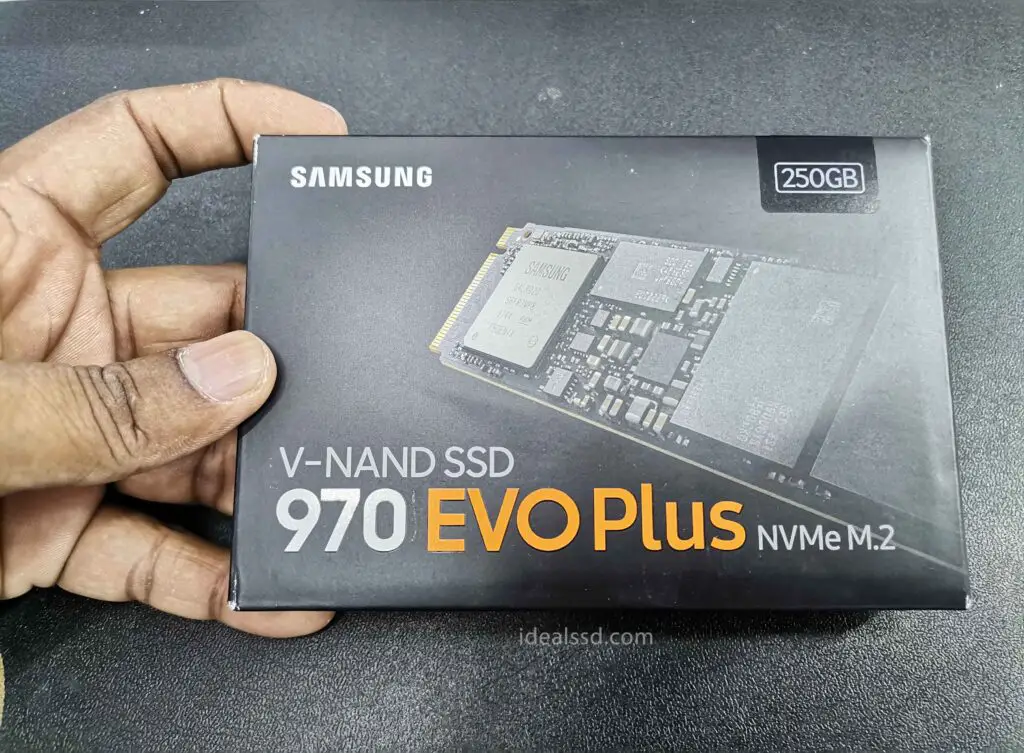Which SSD Is the Fastest? In 2024

There are a lot of different SSDs on the market, and it can be tough to figure out which one is the best for your needs. In fact, it can be so hard that you might even think about going back to a spinning disk. But, don’t do that just yet!
Before you go and give up on the latest technology, let’s talk about what makes an SSD different from an HDD, and which one is best for your needs.
In this article, I’ll take a look at some of the most popular and fastest SSDs out there and what makes them different from one another. This should give you a pretty good idea of which SSD is best for your needs.
Before we get into the fastest SSD, let’s talk about why you should even care about getting an SSD in the first place. After all, you have a perfectly fine hard disk drive that can get the job done, and it probably has a lot more storage space than you could ever need. Right?
What Are SSDs and How Do They Compare to HDDs?

Solid State Drives, or SSDs, have been on the market for a few years now and they are becoming more popular as people learn about them.
Solid State Drives are a type of storage drive that has revolutionized computers and storage by replacing mechanical hard disk drives. This technology is sleek, speedy and much more reliable than its predecessor. However, SSDs are also more expensive than hard drives. They also have very fast read and write speeds. They also have a much smaller physical size.
SSDs offer many benefits over traditional Hard Disk Drives or HDDs. Let’s take a look at some of the ways that SSDs are better.
Benefits Of Using SSD In Your Computer

If you are interested in Addlink SSDs refer Addlink SSD Review: Is It a Good Option for You?
So benefits of using an SSD in your PC are
- No moving parts – Unlike HDDs, SSDs have no moving parts so there are no spinning disks to wait on when loading apps or files. This means that they are much better at multi-tasking and can do things much more quickly than an HDD can.
- Higher storage density – While HDDs have been increasing in storage capacity over the years, new technologies in SSDs mean that they can store a lot more data in a smaller space. In order to read and write more data stored in less space, many semiconductor companies are working on the development of solid state drives, or SSDs. The incredible storage density allows for up to 10x more storage capacity than a traditional hard drive. Storage capacity also depends on how much data you put into one drive as well as how big it is. With that said, two small 256Gb SSDs can store more information than 10 7200RPM HDDs with a storage capacity of 2000Gbs.
- Higher speeds – SSDs use less power and are faster than HDDs so they offer a better overall experience for users who need to load data quickly and work on multiple tasks at once. Things like booting up and shutting down your computer go much more quickly, and transferring files from one drive to another is much faster as well since there are no moving parts to wait on.
- Better value – Even though SSDs cost much more than HDDs, they generally last much longer and will save money in the long term because of their speed and durability. They don’t require defragmentation like HDDs do, which saves you time and money by reducing the number of times you need to run maintenance on them.
- Less heat : HDDs can emit heat because of the moving parts inside them. Since SSDs use no moving parts to work, they don’t generate any heat. You’ll feel less heat from your computer and be able to work more comfortably as a result. But even SSDs have an ideal temperature to work. A higher temperature can result in reduced performance. To know more about the ideal temperature for your SSD read this article. Safe Operating Temperature For SSD
- Less power use : HDDs use more power to function which drains both the battery on your computer and draws extra energy from electrical sources when plugged in. Since SSDs use less power, they don’t drain your battery nearly as quickly and you can work for longer before needing to recharge.
- Long life span: HDDs are subject to a phenomenon known as “bit rot,” which is a term used to describe the effect of the deterioration of a hard disk drive over time. A hard disk drive consists of many platters and each platter has their own magnetic coating. Over time these coatings wear off and the data can no longer be read properly. This is true for all hard disk drives. The amount of data lost over time depends on the amount of use a drive gets, how hard it is used and how long it is left idle. Since SSDs don’t have any moving parts this isn’t a problem, but they do wear out after a few years of intense use. But this thereshold value is highly unlike to meet by a regualar home user. To get an indepth knowledge read this. What Does SSD Wear Level Mean?
- Lower Noice: Since SSDs use no moving parts to work, they don’t make any noise at all. You’ll be able to hear your music or movie without background noise interfering and you won’t have to worry about annoying humming, whirring, or grinding sounds coming from the computer itself.
These are just a few of the ways that SSDs are better than HDDs. Although HDDs are a traditional form of storage media and have been around for a very long time, new technology brings new benefits such as better performance and faster access to your data.
SSD manufacturers such as Samsung Electronics, which is one of the world’s leaders in SSD development and manufacturing, have been able to shrink SSD chips so that they can cram more into each unit. There are several types and models of SSDs available from different manufacturers. These SSDs serve different purposes.
How To Choose the Right SSD for Your Needs?

Choosing the right SSD for your need depends on factors like
- How much you care about speed: The speed of your computer is very important to how well it can run programs, edit and save data, and connect online. SSDs are a 10 times faster than HDDs. They can read data much more quickly than an HDD ever could. Overall an SSD will provide a better experience and help you work more efficiently in comparison to an HDD.
- How much you’re willing to pay: The cost of SSDs is increasing over time. However, you’ll need to decide how much you’re willing to spend on the device. SSDs are much more expensive than HDDs but they also last longer than HDDs, work 10 times faster, and have a lower heat output so you don’t have to worry about your computer being too hot. You can spend a lot of money on an SSD or buy cheaper ones (which may not be as fast) but you’ll end up spending more in the long run. From my experience, I am encouraging you to spend more money on SSDs so you can enjoy the speed and performance they provide.
- What SSD factor your motherboard supports: SSDs are rated as either SATA or PCIe, depending on which connection type your motherboard supports. You’ll need to find out what you need and make sure your hardware can run that type of SSD.
4 Fastest SSDs on the Market
1) WD Black SN850 NVMe
The WD_BLACK NVMe SSD is the next-generation PCIe Gen4 technology optimized for top-tier gaming. With faster read/write speeds up to 7000/5300MB/s and up to 1,000,000 IOPS, this SSD is perfect for NAS or server environments.
It also has a 2TB capacity so you can store your favourite battle-ready games on it. The WD_BLACK Dashboard software is available to customize and control your gaming experience, and its compact form factor makes it easy to connect to your devices.
2) Seagate FireCuda 530 SSD
The Seagate FireCuda 530 Solid State Drive is the perfect upgrade for your gaming PC. With speeds up to 7300MB/s, it harnesses the full power of PCIe Gen4 to let you dominate next-generation games and apps.
It’s also built with a Seagate-validated E18 controller and the latest 3D TLC NAND, making it one of the most advanced SSDs on the market today. Plus, it’s compatible with PS5 consoles for an ultra-fast M.2 SSD storage expansion.
3) Crucial P5 Plus SSD
Are you looking for a storage solution that can keep up with your high-performance lifestyle? Then you need the Crucial P5 Plus. This PCIe 4.0 NVMe drive delivers speeds of up to 6600MB/s, making it the perfect choice for gamers, professionals, and anyone who demands the best performance possible.
It’s also compatible with PS5 and features Heatsink compatibility, ensuring that your drive stays cool even under strenuous conditions. Plus, it comes with a 5-year limited warranty or up to the max endurance rating of 600 TBW, so you can rest assured that your investment is protected.
4) Samsung 980 PRO SSD
Samsung 980 Pro NVMe SSD is raising the bar, delivering read speeds up to 7,000 MB/s. This makes it the perfect choice for next-level computing.
The 980 Pro comes in a compact M.2 2280 form factor and uses nickel coating to help manage the controller’s heat level and a heat spreader label to deliver effective thermal control of the NAND chip.
Future Of SSD

Roughly one-third of all home PCs are still using hard disks, but they’re on the way out. That’s because solid-state drives outperform them in so many ways.
The most important reason to switch is that SSDs don’t use spinning disks, which means there’s no need to worry about latency – if you want your data right now, an SSD will be much faster than a hard disk drive (HDD).
Another big advantage of SSDs over HDDs is that they’re more durable — not only do they last longer with fewer read/write cycles before failing (especially when used for storing videos and other large files), but also the lack of moving parts makes them less likely to suffer physical damage from shock
Conclusion
SSDs are a major improvement over HDDs because they don’t use any spinning disks. They have no need for latency and therefore provide an experience that is much smoother than what you can get from your average hard disk drive.
In this article, I’ve looked at some of the fastest SSDs on the market and discussed how to choose the right one for your needs based on their unique features and benefits. Which kind of SSD do you currently own? If it’s not listed here, let me know in the comments!
References
- Solid-state drive : https://en.wikipedia.org/wiki/Solid-state_drive
- SSD vs. HDD: What’s the Difference? https://www.pcmag.com/news/ssd-vs-hdd-whats-the-difference





